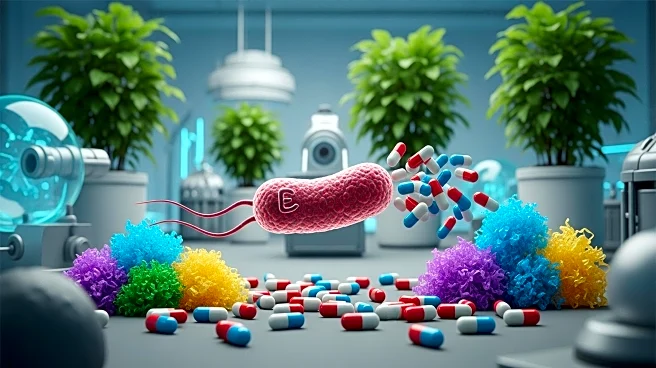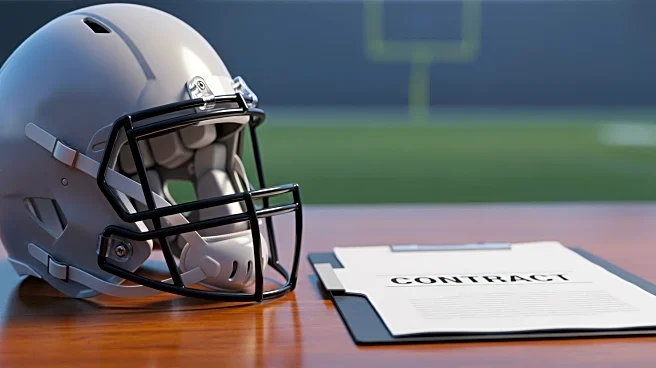What's Happening?
A team of scientists at the University of Edinburgh, led by Professor Stephen Wallace, has successfully genetically engineered the bacterium E. coli to transform plastic-derived molecules into paracetamol, a widely used painkiller. This innovative approach utilizes the non-pathogenic strains of E. coli, which are known for their rapid growth and ease of genetic manipulation. Historically, E. coli has been instrumental in biotechnology, having been used to produce synthetic human insulin and other products. The research aims to address the global plastic waste crisis by converting waste into valuable medical products, showcasing the potential of microbial biotechnology in solving environmental challenges.
Why It's Important?
The ability to convert plastic waste into pharmaceuticals represents a significant advancement in both environmental sustainability and medical production. This development could reduce the reliance on traditional manufacturing processes for painkillers, potentially lowering costs and environmental impact. Furthermore, it highlights the role of biotechnology in addressing global waste issues, offering a dual benefit of reducing landfill waste while producing essential medicines. The success of this research could pave the way for similar applications, transforming other types of waste into useful products, thereby benefiting both the environment and the healthcare industry.
What's Next?
The research team may continue to explore the capabilities of E. coli and other microbes in converting various types of waste into valuable products. Future studies could focus on optimizing the efficiency of the conversion process and scaling up production for industrial applications. Additionally, researchers might investigate other bacteria, such as Vibrio natriegens, which could offer even greater efficiency and versatility in biotechnological applications. The ongoing development in microbial biotechnology could lead to breakthroughs in sustainable production methods, potentially influencing policy and industry practices regarding waste management and pharmaceutical manufacturing.
Beyond the Headlines
This research underscores the broader implications of microbial biotechnology in addressing environmental and industrial challenges. The ethical considerations of genetically modifying organisms for industrial use may prompt discussions on biosafety and environmental impact. Moreover, the success of E. coli in biotechnology could inspire further exploration of lesser-known microbes, potentially leading to new discoveries in microbial capabilities. As the field evolves, it may also influence cultural perceptions of biotechnology and its role in sustainable development.










